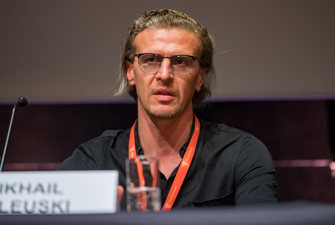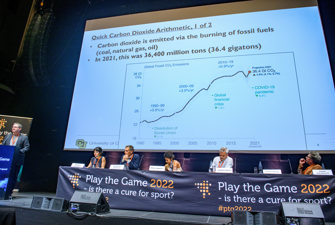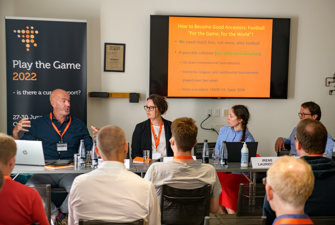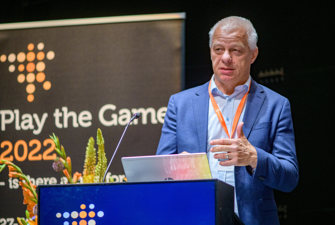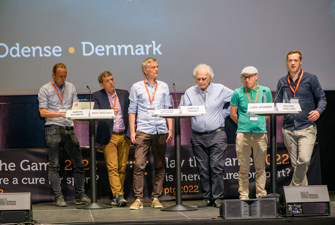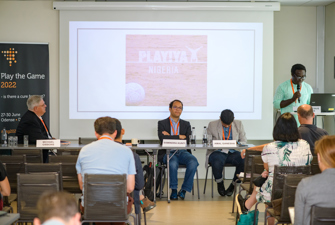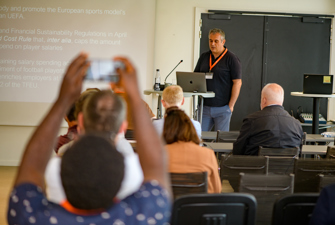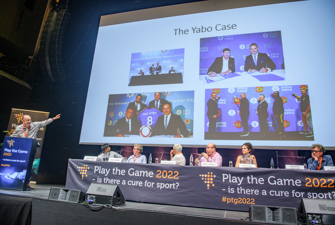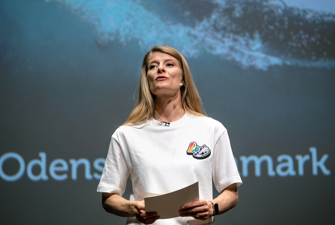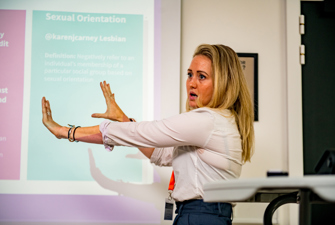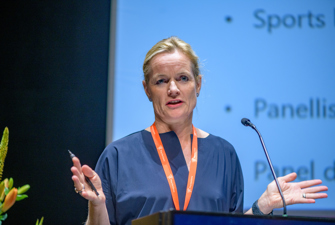From sportswashing in autocracies to soft power in democracies
How will the global debate on human rights and workers’ rights in world sport play out after the FIFA World Cup in Qatar? Play the Game asked James M. Dorsey, a senior fellow at the National University of Singapore’s Middle East Institute, and Jules Boykoff, a professor of politics and government at Pacific University in Oregon, US.
The controversy over Qatar’s violation of human rights and labour rights mirrors similar accusations of sports washing in two other autocracies: China, host of the Olympic Winter Games earlier this year, and Russia which hosted the Olympic Winter Games in 2014 and the FIFA World Cup in 2018.
But 12 years after the rich emirate was awarded the right to organise the most attractive event in the world’s most popular sport, the critique in Western democracies of the autocratic rulers in the first ever Middle East country to host the international football association FIFA’s World Cup is far from over.
At Play the Game’s conference in Odense this summer, Andy Spalding, a professor from the University of Richmond School of Law in the US, argued that Qatar has made more human rights reforms in recent years than any other mega-event host. He also disputed the alleged figure of 6,500 migrant worker deaths in Qatar since 2010, saying these deaths were not all work-related.
But Minky Worden, the director of Global Initiatives at Human Rights Watch, said the deaths figure was likely underestimated as the source was only five embassies. And several investigative journalists from Scandinavia complained that Qatar’s repression of independent journalism often results in one-sided and unbalanced news coverage and accusations against them for being activists rather than journalists.
Qatar is a progressive state in the Middle East
So, what’s the truth about Qatar’s dead migrant workers, repression of press freedom, and alleged attempts to reduce its human rights and labour rights violations in an industrialised world where the global figure of work-related deaths according to the International Trade Union Confederation is 2.8 million each year?
And how will the debate on sportswashing play out when the most controversial global sports event in history comes to an end and the FIFA World Cup moves on to the US, Canada, and Mexico in North America while the next three editions of the Olympic Games will be hosted by Paris in France, Los Angeles in the US, and Brisbane in Australia, all democratic countries?
“Qatar is an autocracy. There is no question about that. But it’s also a progressive state in the Middle East when it comes to human rights and democracy. And it can’t afford to roll back the reforms after the World Cup,” says James M. Dorsey, a senior fellow at the National University of Singapore’s Middle East Institute and author of the blog The Turbulent World of Middle East Soccer.
At Play the Game 2022, James M. Dorsey accused journalists in general for being lazy, not getting the facts straight, and searching for a quick comment rather than a deeper understanding of human rights and workers’ rights issues in the Gulf region:
“This debate is not new in the Gulf region. In the 1970s, I wrote an article on labour issues in Kuwait that described the country as an apartheid society. These issues play out across the Gulf and beyond. If the human rights groups and trade unions play it smartly, their goal post for the World Cup in Qatar will be to keep these issues in the public domain. And they should. They should keep focus on this in the Gulf states, South-East Asian states and even in Western states. Including Qatar, rather than Qatar exclusively.”
Prejudice, bias, bigotry, arrogance and a lot of sour grapes
According to Dorsey, only a few major news media in the world have a tradition of following up stories. That makes him question whether the international media will keep its present focus on human rights and workers’ rights in sports after the World Cup in Qatar.
“I suspect the English-speaking media, given the depth of distrust of Qatar and the degree of prejudice rather than looking at the facts and drawing your own conclusions, will keep Qatar in the news for the wrong reasons. There is an element of prejudice, bias, and bigotry. And there is an element of sour grapes too,” he says.
In Dorsey’s view, back in 2010 when FIFA elected the World Cup host countries for 2018 and 2022, Qatar was ready to do “what it takes” to host the World Cup. But, he argues, Qatar learned from former host countries, including democracies, about what it takes, and Qatar did not do anything other countries did not do to get the World Cup.
“Qatar had the money and the incentive to invest in a World Cup bid that outflanked anybody else. It was a very rational decision. For countries like the US, it’s good to have soft power benefits such as music, art, and literature. For Americans, a World Cup bid is not about security and defence. For Qatar it is,” he says with a reference to Qatar’s vulnerable geopolitical position in the Middle East surrounded by countries that have much stronger hard power resources.
“There is a lot of sour grapes because other countries weren’t willing or able to put up that money. And there is an element of arrogance too, if you wish, from people saying it’s a waste of money to build eight new stadiums in a small country of only 300,000 citizens. And because of the prejudice, bias, and bigotry, assumptions were made without evidence, fed by the United Arab Emirates who discredited Qatar in any way they could as part of the information war.”
In 2026, the FIFA World Cup will be hosted by the US, Canada, and Mexico. But even though they are all democratic countries, Dorsey does not expect that the North American event will stop the political information war.
“The liberals and the lefties are no better in terms of trying to impose a position. They are just as bad as anybody else. The idea that sport and politics are separated is fiction. But whether and how the media and the human rights groups and trade unions will tackle human rights and workers’ rights issues ahead of the next World Cup and other future global sports events in democratic countries remains to be seen.”
According to Jules Boykoff, the framing of soft power strategies in democracies is not that different from sportswashing in autocracies.
Photo: Thomas Søndergaard/Play the Game
Dubious moneymen from authoritarian regimes
At Play the Game 2022, Ane Halsbo-Jørgensen, Denmark’s Minister for Culture, accused international sports federations of completely disregarding basic human rights when awarding international sport events. She described “a huge lack of transparency and democracy within FIFA” and the human rights situation for migrant workers, women, and LGTB+ persons in Qatar as “sportswashing at its worst”.
Furthermore, the Danish minister said that “another example of sportswashing is the many football clubs owned by dubious moneymen from authoritarian regimes”. Ane Halsbo-Jørgensen is one of 35 sports ministers, including 25 from member states in the European Union as well as the US and Japan, who recently signed a call for all international sports federations to suspend their members from Russia and Belarus because of the war in Ukraine.
But according to Jules Boykoff, a professor of politics and government at Pacific University in Oregon, US, and the author of four books on the Olympic Games, including The Power Games: A Political History of the Olympics and NOlympians: Inside the Fight Against Capitalist Mega-Sports in Los Angeles, Tokyo and Beyond, the framing of soft power strategies in democracies is not that different from sportswashing in autocracies.
“We are already seeing this from the organisers of the Olympic Games in Paris in 2024 and Los Angeles in 2028: ‘We are different, we are not like these previous Games,’ they say. It’s true. We don’t have Uighur Muslims that are treated as slaves. But there are chronic problems that are endemic to the Olympic Games: Overspending, militarisation of public space, greenwashing, displacement, forced eviction, and lack of democracy,” says Boykoff.
To him, one of the challenges of the next two Summer Olympic Games in France and the US are the problems in both countries with homeless and unemployed people fighting for their right to a decent life in two democracies that also have a tradition of clashes between protesting social movement activists and police forces.
“We might not see brutal treatment of minorities, but we are already seeing in Los Angeles the gentrification. The Olympics bring these problems to every Olympic city at different levels, and that is what we are going to be talking about for the next couple of years.”
The Olympics are designed to increase nationalism
Officially, Los Angeles has around 54,000 homeless people. But according to Boykoff the correct figure could be more than 100,000, and he doesn’t believe hosting the Olympic Games will solve the problem.
“No way. It’s irresponsible to say they will use the Olympics to solve it. The chances are it will probably be even worse. That’s why I have called it sportswashing.”
Even though most people use the term ‘sportswashing’ in relation to autocracies, Boykoff argues that democracies are also hosting popular global sport events as a part of their national soft power strategies.
“The Olympics are essentially structured and designed to increase nationalism. There is no reason why athletes need to march into the Olympics behind a flag as a country. You can have all the figure skaters or the skiers march together. That would be a true sign of international solidarity. So, the very way the Olympics are organised is to cement nationalism. And that nationalism can in return be weaponised and used to create a sliding path towards war between nations,” he says.
Furthermore, Boykoff argues, the IOC has never been a democratic organisation and still isn’t. The global leader of the Olympic Movement is not developing more democracy in sports, but less.
“I was a little bit more optimistic when we were talking about having referenda as part of the Olympic bid process. That was a little bit more democracy for ordinary people around the Olympics, but the IOC has gone in the opposite direction where they started to hand out Olympics 11 years in advance before anyone can have a meaningful conversation about it. The IOC has shown no interest in democracy, and they have figured out a way of going around it yet again.”
Social movements make space for athlete activism
On the other hand, Boykoff sees many positive democratic signs in the anti-Olympic movement and in athlete activism. And he thinks these movements will continue to play a role in the development of more democracy, transparency, and freedom of speech in sport.
“I just came back from the second transnational anti-Olympic summit in Paris. The first one was held in Tokyo in 2019. Anti-Olympic activists came from around the world to share strategies and tactics, and they are trying to globalise the resistance to the Olympics,” he says.
“Obviously, we are talking about a massively lopsided competition. The IOC has billions of dollars and a strong public relations network. But the activists have a lot of facts, and I don’t see it ending anytime soon. Because every time any of these Olympics rolls into a city, it rolls over the toes of these activists that work around issues of gentrification, policing, and environmental issues.”
According to Boykoff, vibrant social movements in a country or a city almost always make space for moments of athlete activism. That’s why we have seen a lot of athlete activism in the past years.
“This is a moment of vibrant social movement activity. So, with that in mind, the conditions structurally are set for a rise in athlete activism. A second factor is the relative autonomy of athletes in terms of finances. Because there are so many well-known athletes around the globe that are doing very well in terms of money, they are insulated from a lot of the punishment that would otherwise come their way,” he says.
“And another key factor is the rise of a branding movement for athletes where it has become almost cool to be involved in at least athlete advocacy. For me, there is a sharp line between advocacy and activism. But advocacy can sometimes be the gateway towards activism, meaning taking strong stands on controversial issues.”
Most athletes are precarious workers
Boykoff also points to the fact that the US has a long history of athlete activism that for some time has been hidden, especially in the 1980s and 1990s, but are now starting to emerge even though most athletes are precarious workers which often makes it difficult for them to stand up and speak out.
“I think it will last, at least in the short term. Because the unions in the US are growing and we also have a strong MeToo movement. Athletes benefit from that.”
When looking at athlete activism in autocratic countries like Belarus, Afghanistan, and elsewhere, Boykoff thinks it is incredibly courageous of the athletes to stand up against power for their rights and the rights of others. But he doesn’t expect all athletes in democracies to join their fight for democracy in sport.
“The more democracy the better. The more transparency the better. I have the deepest respect for what the Belarusian athletes and others are doing, and I can see it must be frustrating for them to fight on their own. But until we have more unionised athletes, I think it’s a big ask to expect all athletes to stand up and speak out. They risk losing their jobs and sponsorships and they have a short window, so I can understand why many of them take the money while they can.”
